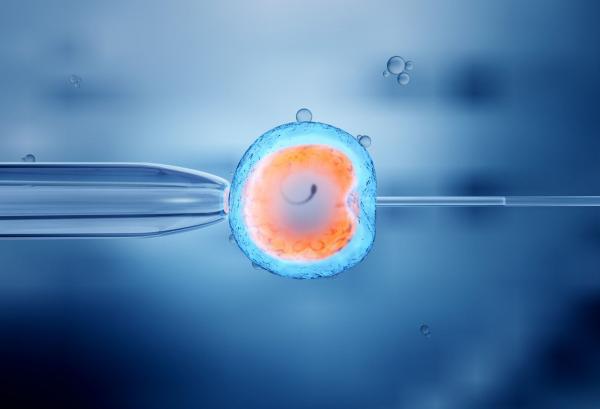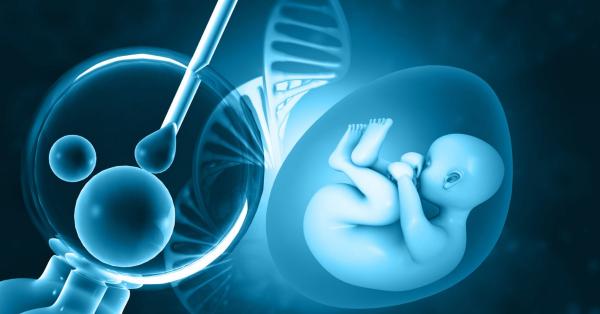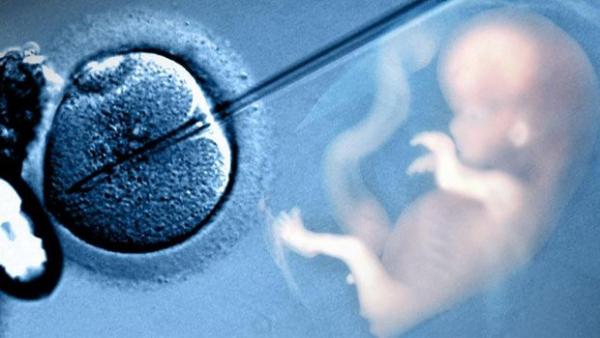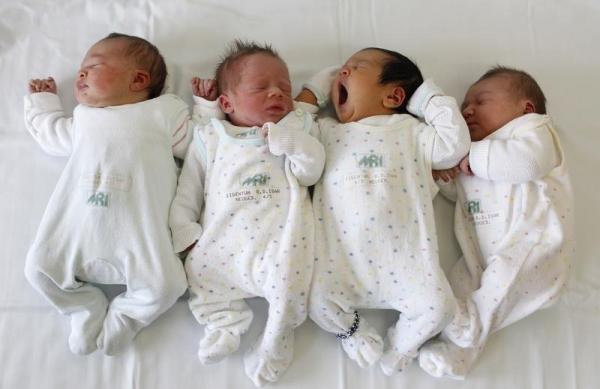assisted reproduction method, artificial insemination or IVF

 IVF
IVFWhat is IVF?
IVF is one of the assisted reproductive methods that has helped millions of pregnant women to experience motherhood. IVF is performed with the help of a gynecologist and helps to treat fertility problems that have made natural pregnancy difficult or impossible. Women who have been trying to get pregnant for a long time but have not been successful are suggested to do IVF.
The treatment cycle considered for this treatment period lasts about one month. In fact, during this time period, under the influence of sex hormones, a small sac the size of a grape seed is created, which contains eggs and has the ability to grow. In the middle of the cycle, this small sac opens and releases the egg.
The whole process is done under the influence of hormones, the released egg enters the uterus and the existing sperms reach it. Sometimes, under the influence of various factors, sperm and egg do not meet and fertilization does not take place, as a result of this limitation, embryo formation and pregnancy do not occur.
 All about IVF
All about IVFIn the following cases, the use of IVF treatment is suggested to the patient:
Failure of two to four cycles of ovarian stimulation with IUI
– Severe endometriosis
– High age of the woman (more than 35 years)
– The presence of causes of infertility in men, such as a decrease in the number or motility of sperm
– Infertility with unknown causes
– Decrease in ovarian reserve (decrease in the number of eggs)
– Obstruction of fallopian tubes or pelvic adhesions
Stages of IVF:
IVF is done in the following steps:
Ovarian stimulation stage:
Before fertilization, the egg must be obtained. In this case, ovulation induction drugs are prescribed. Also, the condition of ovarian and uterine follicles is checked through ultrasound and blood tests.
Egg collection stage:
After the ovaries are properly stimulated, ovulation stimulating drugs are injected. About 36 hours after injection is the time to extract the eggs (oocyte).
A special needle is passed through the vagina and then the pelvis and is delivered to the ovaries. This operation is performed under the control of vaginal ultrasound. At this stage, they use anesthesia, painkiller injection or intravenous sedative to eliminate the pain.
After the oocytes are extracted, they are checked for quality and maturity level, and according to this information, the eggs are kept in the laboratory environment for a certain period of time.
Sperm collection stage:
The patient's wife should put the sperm samples in a sterile plastic container on the same day that the egg was extracted. Sperm samples are usually washed twice in the laboratory to increase their quality, for example, sperms that are more mobile are used for fertilization. Finally, they use the highest quality sperms for fertilization.
Fertilization and embryo culture stage:
In order to perform fertilization, the sperms that had the best quality are added to the collected eggs, often there are hundreds of thousands of sperms per egg.
After 12 to 18 hours of egg and sperm fertilization; Evaluation is done to ensure the fertility and proper state of the egg.
Embryo transfer stage:
After 2 to 5 days of extracting the eggs, after the fertilization takes place and the embryo is created, it is transferred to the cervix through a catheter. This step is often done quickly and painlessly. After two weeks of embryo transfer, a pregnancy blood test is performed if it is positive; 2 to 3 weeks later, an ultrasound scan is performed to check the state of pregnancy.
 IVF procedures
IVF proceduresLength of IVF treatment:
Regarding the duration of IVF treatment, it should be said that it takes about 3 weeks from the time the drugs are prescribed and received until the embryo is transferred to the uterus. But if we consider the time to start the IVF course from the time of the first visit and consultation, as well as the review of medical documents and files to ultrasound and necessary tests, it will take about 4 weeks.
After going through these steps, IVF starts. First, special pregnancy drugs are prescribed for 2 weeks. During this period, the necessary tests and ultrasound to control the condition of the follicles and the uterus are also performed.
After this period, the operation of puncture and ovulation is performed, which will take about half a day. After that, egg and sperm fertilization takes place in the laboratory and about 3 to 5 days after fertilization, the embryo is checked for transfer and then the embryo transfer is performed.
After two weeks from the end of the treatment period, tests called beta, which is a pregnancy blood test, are performed to make sure that the woman is pregnant.
Chances of pregnancy in IVF:
The chances of success in IVF pregnancy depends on factors such as age, infertility problems, previous pregnancies, lifestyle and treatment. The younger the mother's age, the higher the probability of success in this method. People under the age of 35 have a higher chance of success with IVF, which is estimated at 20-30%. This probability decreases with age.
To increase the chance of pregnancy in artificial insemination, methods such as embryo freezing, endometrial scraping, egg hatching, and endometrial PRP can be used based on the doctor's opinion.
 Chances of pregnancy in IVF method
Chances of pregnancy in IVF methodAdvantages of EVF:
IVF is known as the oldest method of assisted reproduction, for this reason, various researches have been conducted to increase the health of this method and the babies resulting from it, and no complications have been seen as a result of IVF. In addition to this, recent research shows that fertility drugs do not increase the incidence of ovarian cancer. It should be noted that the researchers are conducting additional studies to improve the situation of IVF in the future.
Using artificial insemination in laboratories, ectopic fertility can be observed; When the fetus develops inside the abdomen or inside the uterine tubes, the doctor tries to remove it from the extrauterine lining with medicine or surgery.
Women taking fertility drugs may experience overstimulation of the ovaries, when the ovaries are overstimulated they will grow to large sizes. This enlargement will cause symptoms such as feeling full and suspended, shortness of breath, pelvic pain, vomiting, weight gain, dizziness and nausea.
Complications of IVF:
IVF, like many other treatment methods, may have side effects that include the following:
– The discharge of a small amount of clear fluid stained with blood after the egg cell placement process
– Cramps, mild abdominal cramping
– Mild bloating
– Constipation
– Breast tenderness or sensitivities
If you see the following symptoms, you should immediately inform your doctor:
– Severe vaginal bleeding
– Pelvic pains
– Seeing blood in the urine
– Fever above 38 degrees
Some of the side effects caused by IVF are related to the drugs that were used in the IVF treatment process, these drugs can cause side effects such as:
– Headache
– Abdominal pains
Cramps
– Flatulence
– Ovarian hyperstimulation syndrome; The most important symptoms of this syndrome are nausea or vomiting, decreased urine output, lethargy and fainting, severe abdominal pain and bloating, and heavy weight gain within three to five days.
– Another side effect of IVF that brings happiness to some is multiple births. When several embryos are transferred to the uterus during the IVF process, the risk of premature birth, low birth weight and multiple births increases.
 Multiple birth complications caused by IVF
Multiple birth complications caused by IVFCare after IVF:
Taking care after IVF is very important and it is necessary to follow them to get the desired result. In general, recommendations and care after IVF include the following:
– Heavy physical activities such as heavy sports, lifting heavy objects, doing hard work should be avoided until the condition of the mother is confirmed.
– The food plan should be in a way to prevent constipation or bloating.
– As mentioned, you may have some clear discharge or spotting after IVF. The presence of slight swelling and sensitivity when touching the breasts, as well as slight cramping in the muscles, is also normal and you do not need to worry.
 Care after IVF
Care after IVFSex determination with IVF:
Determining the gender of the fetus using IVF and PGD or PGT is the most advanced method of gender determination, which has an accuracy of about 100%. In this method, a number of embryonic cells are created and sent to the laboratory a few days later.
After the sampling is done, the embryos are frozen so that the genetic evaluation results can be obtained. After that, with genetic analysis, parents can be sure of the gender of their fetus.
If the gender of the analyzed fetus is approved by the parents, the fetus will be implanted into the uterus. This method allows parents to choose the gender of their fetus with 99.9% accuracy.
compilation: The matrimonial part of the cap






